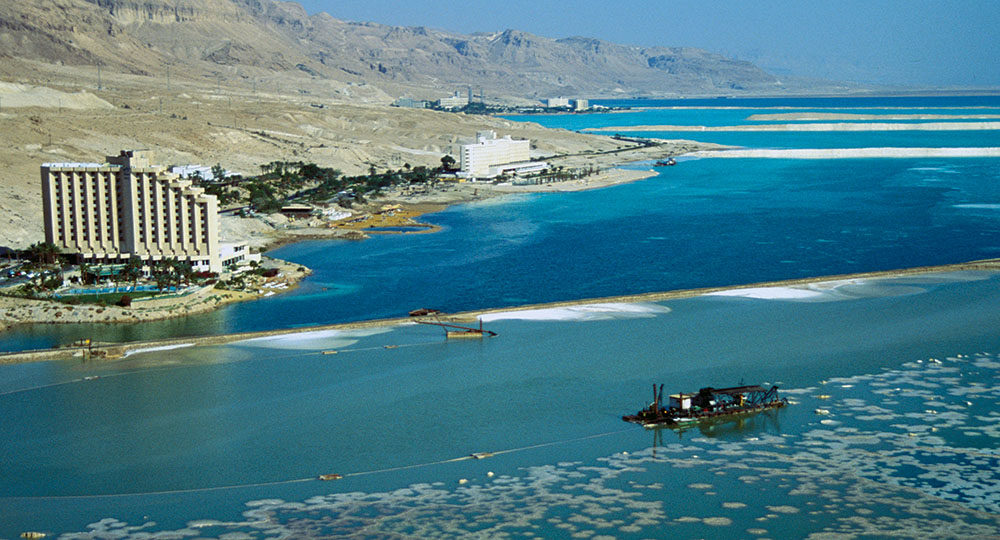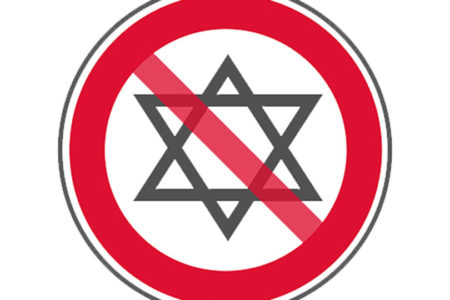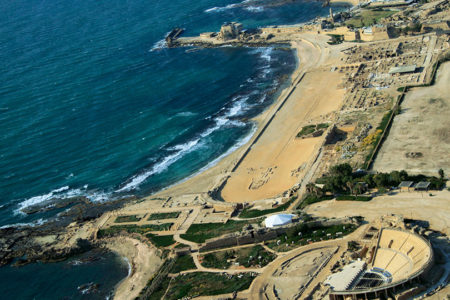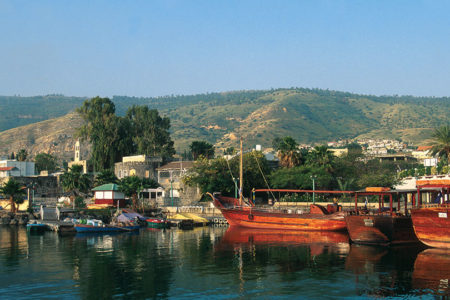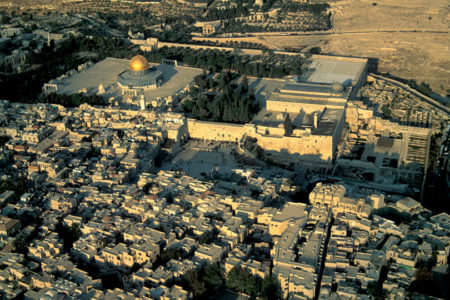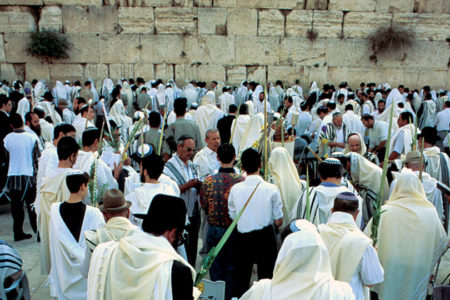The Dead Sea
The name Dead Sea does not appear in the Bible. Biblically, the body of water is called the “Salt Sea” (Gen. 14:3), “Sea of the Arabah” (Dt. 3:17; 4:49), and “eastern sea” (Zech. 14:8). In reality, however, it is more a lake than a sea.
Water from the Jordan River and other streams created the Dead Sea, which is 1,300 feet below sea level, making it the lowest place on Earth; 1,300 feet at its deepest point; and about 50 miles long and 10 miles wide. It has no outlet and receives two to four inches of precipitation per year.
The arid climate causes the lake to evaporate at a rate of 7 million tons of water per day. As the water evaporates, it leaves behind a salty residue that is 33 percent chemical salts (9.5 percent saltier than the oceans).
Such chemicals as sodium, chlorine, bromine, potassium, magnesium, and sulfur are mined from the Dead Sea, as well as the mineral gypsum. The lake contains an estimated 40 billion tons or more of salts and minerals worth an inestimable fortune.
Because of its high mineral content, nothing can live in the Dead Sea today; but Scripture teaches it will be teeming with life in the Millennial Kingdom because it will become a freshwater lake (Ezek. 47:8–10).
The Dead Sea is a major center for health research. Since biblical times, bathing in it has been an effective therapy for sufferers of psoriasis and other diseases.
A major biblical event connected with the area centers on Lot and his relationship to the city of Sodom. Lot went from Egypt with his Uncle Abraham, and they both settled in the Jordan Valley. Dissension arose between their herdsmen over land rights. Abraham graciously settled the quarrel by giving Lot his pick of the land (Gen. 13:1–9).
Lot greedily chose the Jordan Valley because it was well watered, like the Garden of God (Eden). So he left Abraham and pitched his tent in the direction of Sodom, where he eventually moved (vv. 10–13).
In time, angels visited Abraham, telling him of Sodom’s impending destruction, whereupon Abraham interceded in prayer for Lot’s survival.
When the angels left Abraham they went to Sodom, where Lot met them and persuaded them to lodge with him. The depraved men of Sodom demanded to have sexual relations with the angels, but Lot vehemently disapproved and offered his virgin daughters instead. The men rejected the offer.
Lot warned his sons-in-law of Sodom’s impending doom, but they mocked him in unbelief (18:16—19:14). In the morning, Lot and his family tarried in the city and had to be forcibly delivered by the angels. His wife looked back in disobedience to God’s warning and immediately turned into a pillar of salt.
God destroyed Sodom by fire and brimstone, and no remains have ever been found. Sometime later, Lot’s virgin daughters committed incest with him, and each bore a son. One was Moab; the other, Ammon—the fathers of the Moabite and Ammonite nations destined to become bitter enemies of Israel (19:32–38).
Lot’s life contains many interesting facts and spiritual lessons:
- Lot was exposed to spiritual privileges and given material possessions from God but became a carnal man, living outside of His will.
- Strife between family members often arises, but must be settled in a godly manner.
- Lot took advantage of Abraham’s generosity when given first choice of the land, and he greedily chose the best for himself.
- Lot was a worldly man, lured into Sodom by its luxury and position; and Sodom caused his downfall.
- Lot was godly in his character. Yet he sat with wicked leaders in Sodom, offered his virgin daughters to the wicked men of Sodom, and had no godly testimony or credibility with his sons-in-law when telling them of Sodom’s impending destruction by God.
- Lot ended up losing his wealth, wife, relatives, credibility, children, character, influence, property, and two virgin daughters who committed incest with him.
- Lot was spared from judgment because of God’s mercy and Abraham’s intercession.
